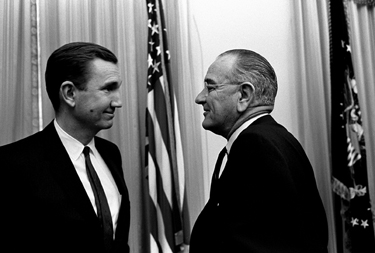Unless You’re the Former Attorney General, Don’t Try This at Home: An Unusual OFAC License is Granted

I came across an interesting opinion from the United States District Court for the District of Columbia the other day which I hadn’t seen up until this point. The case is Wyatt, et. al. v. Syrian Arab Republic, and it involved a claim against the Government of Syria for its alleged support of the Kuridistan Worker’s Party. The case itself isn’t of particular importance to the subject matter of this blog, but there was a particular aspect of it that caught my attention. The Plaintiffs in Wyatt sought to attach, for purposes of collecting on a judgment they had been awarded, $150,000 that had been blocked by Abu Dhabi International Bank (“ADIB”). The funds in question had been transferred by the Government of Syria to W. Ramsey Clark–the former Attorney General of the United States–who was providing legal services to the Government of Syria under a general license (Syria General License No. 2) issued by the United States Department of the Treasury’s Office of Foreign Assets Control (“OFAC”). That codification took place on May 2, 2014 and a version of that authority now appears in 31 C.F.R. § 542.507(a), (d). Both Syria General License No. 2 and 31 C.F.R. § 542.507(a), (d) require that the payment for the generally authorized legal services be specifically licensed; although the there is now a separate regulation (§ 542.508) that says the filing of an engagement letter with OFAC’s Licensing Division will satisfy the specific licensing requirement.
Of particular note, is that the transfer was blocked on June 5, 2013. OFAC then issued the license to unblock the transfer on November 7, 2014–over seventeen (17) months later. It is assumed that since OFAC actually issued an unblocking license in this matter, that ADIB’s blocking of the transfer was proper. Furthering this belief is that there is no mention in the record that Clarke or his partner, Lawrence W. Schilling, ever filed for or obtained a specific license to receive payment. Even if they had merely filed the engagement letter to satisfy that requirement, authorization for payment in that manner would only have been authorized after May 2, 2014; nearly a year after the blocking occurred. As such, it seems that the blocking was proper. The Government filed a Statement of Interest in this case acknowledging that fact, stating “Because an attempt to make payment for legal services was initiated without a specific license, the transaction was prohibited and the funds were placed in a blocked account.”
In that same Statement of Interest, the Government goes on to say “…..consistent with the licensing policy with respect to payments for generally authorized legal services, OFAC issued a specific license authorizing ADIB to transfer the funds to Syria’s counsel as payment for legal services rendered on behalf of Syria.” In other words, the Government is saying it is consistent with OFAC’s licensing policy to unblock assets that were legitimately blocked due to a failure to obtain an OFAC license, if the purpose of the transfer was for the provision of generally authorized legal services.
This then begs the question: why is there any specific licensing requirement at all for generally authorized legal services? If OFAC is going to simply unblock funds in such scenarios, then why not just generally authorize the payments as well. It seems to be a waste of resources for parties to make submissions seeking authorizations that–while required–are ultimately unnecessary since OFAC has a policy of unblocking such funds after the fact anyway. Furthermore, given that the U.S. government has stated the unblocking of these funds is consistent with OFAC’s licensing policy, it sends a signal to OFAC practitioners that if you want to represent a blocked party in any manner for which a general license exists, that you can receive payment through the unblocking of funds; lest, Clarke and Schilling be afforded special treatment.
What makes this all the more confusing is that OFAC maintains a specific licensing policy for the release of blocked funds for the payment of legal services in Specially Designated Nationals (“SDN”) reconsideration cases. However, that licensing policy makes clear that such licenses will only unblock funds of U.S. persons up to approximately $38,000. That amount would be for two lawyers working on the reconsideration, filing of a civil lawsuit, and any appeal; a far cry from the $150,000 OFAC unblocked for the former Attorney General for he and his partner’s representation in litigation. Draw whatever inferences you may, but it seems quite curious to allow nearly five (5) times the amount of fees to be unblocked to pay for the representation of the Government of Syria in litigation than would be available to a U.S. person to contest their own designation.
I’ve been doing this long enough to know that it is unlikely that this case, as the Government has described it, is “consistent with [OFAC’s] licensing policy”. While OFAC does allow funds to be paid by SDNs from unblocked sources–pursuant to a specific license or other regulatory requirement–I have never seen them take such a flexible position on the unblocking of assets, with maybe the exception of the licensing policy concerning payments for legal services extended to U.S. persons in the SDN reconsideration process described above. While I’m certainly not complaining (actually this would be great thing for those representing blocked parties), I also can’t advise anyone that the circumstances in this case are an accurate reflection of OFAC’s licensing policy, nor can I advise anyone that OFAC would act in manner consistent with what occurred in this case in similar future cases.
The author of this blog is Erich Ferrari, an attorney specializing in OFAC matters. If you have any questions please contact him at 202-280-6370 or ferrari@ferrariassociatespc.com


